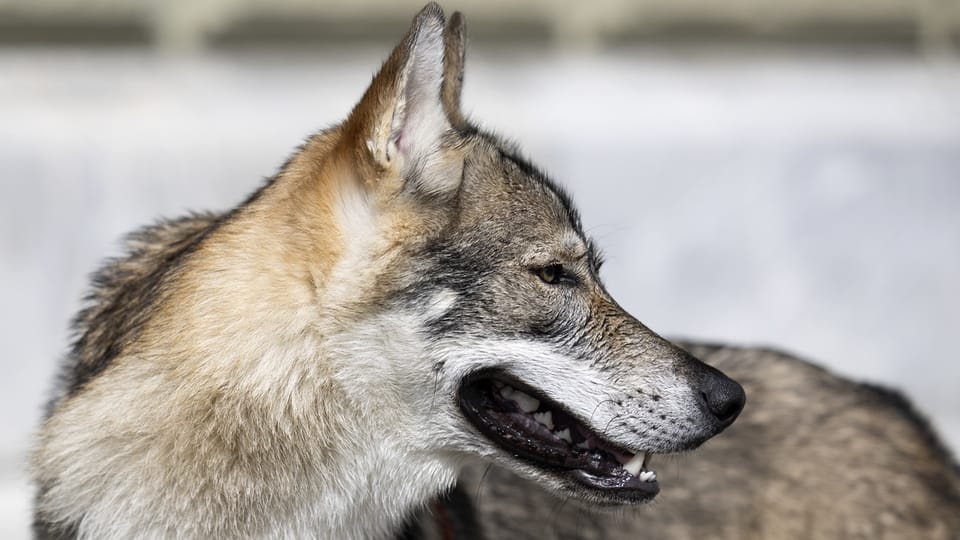Contents
How many packs is needed at least to ensure that the survival of wolves in Switzerland is not jeopardized? Apparently this is not determined by science, but by politics.
The wolf population may be reduced by up to 70 percent, and at least twelve of the 32 packs living in Switzerland must be preserved. When the Federal Council announced at the end of August how it planned to implement the revised hunting law, there was a huge outcry – and the question was raised as to how these figures were arrived at. The Federal Office for the Environment (BAFU) is now responding to a request from the SRF “Club”.
Not only environmental associations have criticized the Federal Council regulation in recent weeks, there is also resistance in the cantons. The Commission for Forests, Wildlife and Landscape (KWL), which includes the cantonal hunting directors, wrote that this national threshold of twelve wolf packs was set “arbitrarily”. It corresponds “neither to the scientific species protection considerations of the Bern Convention or the Alpine Convention, nor to the previous statements of the Federal Council”.
This criticism is underlined by KWL President Josef Hess, government councilor for the canton of Obwalden (independent) in the “Club”: “We judge the threshold to be low. Based on wildlife biological studies that we know of, it would take around 20 to 25 packs.”
So how does the federal government come up with these twelve packs? At the request of the “Club”, the Bafu writes that this is a political decision: “It is up to the Federal Council to specify the new legal provisions.” The Bafu also refers to a recommendation from the Alpine Convention from 2016. The Alpine Convention is an international treaty between the eight Alpine countries and the EU. Only: nowhere in the document is there mention of twelve packs, on the contrary.
Report of the Alpine Convention (2016)
Legend:
Excerpt from the report of the Alpine Convention (2016), which was co-financed by the Bafu.
Alpine Convention report
In order to achieve the goal defined in the convention and to ensure the preservation of wolves in the Alps, the aim is to have 17 packs in Switzerland. This would include three packs in the Jura, explains the Bafu – which brings us to the 20 packs to which the KWL also refers. The report was co-financed by Bafu; The first author is Reinhard Schnidrig, who is still head of the section for wildlife and species promotion at the Federal Office.

Legend:
How many packs is needed at least to ensure that the survival of wolves in Switzerland is not jeopardized?
Keystone/PETER KLAUNZER
The contradiction to current politics is obvious. The report also emphasizes that a “more or less even” distribution of packs in the Alpine countries is necessary. In neighboring countries there was a correspondingly irritated reaction to the Federal Council’s decision.
Pressure on cantons and wild hat
The KWL also criticizes that this low minimum threshold creates expectations among the mountain population that cannot be met – “this unnecessarily increases the pressure on the cantonal game guard and the cantons concerned.”
In response to this accusation, the Bafu says that the number of packs living in Switzerland could well be higher: “In the future, it will continue to be up to the cantons to decide which packs they consider to be subject to regulation and which ones do so is not necessary. The regulation gives the cantons the necessary scope for action – without requests from the cantons, no action will be taken on the packs.
